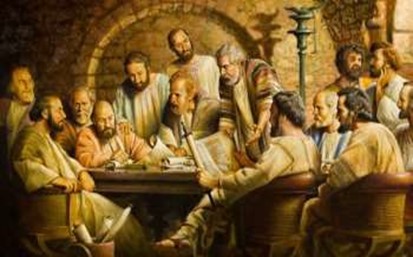This I Believe…
“The Essential Doctrines of the Christian Faith”
Jude 1:1-25
We live in a time of spiritual and moral confusion, such as the world has not seen in many millennia.
- The root cause of this ethical uncertainty is the doctrinal and theological weakness of today’s church.
- What was once a difference in application and expression of certain doctrines has now become a complete restructuring of the foundational doctrines of the Christian Faith.
- The satanic movement of Progressive Christianity has wholly infiltrated the evangelical church and seduced it into apostasy.
- Progressive Christianity is today’s theological liberalism that seeks to establish a system of Christian faith detached from the historicity and divine authority of the Bible.
- Progressive Christianity promotes a social gospel based upon compassion, justice, mercy, and love rather than a saving gospel based upon truth.
- However, the essential doctrines of the Christian Faith are eternal and absolute – two words that drive liberals insane, because they do not believe absolute truth exists.
To achieve the Marxist agenda of the political left, i.e., globalism, biblical Christianity must be destroyed.
- Rather than today’s pastor’s proclaiming, “Thus saith the Lord,” many of them are now asking the same question Satan asked Eve, “Hath God said?”
- Many pastors are turning their backs on the fundamentals of the Christian Faith and watering down the gospel to make it more palatable for today’s culture.
- In so doing, they are leading the church into that apostasy the Apostle Paul said would occur just before the return of (2 Thessalonians 2:2)
APOSTASY
“The deliberate rejection of the essential doctrines
of the Christian Faith and the intentional
embracing of the lies of false teachers.”
Adapted from the International Bible Encyclopedia
- By redefining the gospel, progressives think they are being inclusive to liberal-minded people when, in reality, they are rendering the Chr
istian Faith irrelevant and turning lost people away from
- The Christian Faith is a defined system of beliefs built upon essential truths, which are called doctrines; teachings authored by God and communicated to man to “Make him wise unto salvation.” (2 Timothy 3:15)
- The epistle of Jude exhorts believers to “Earnestly contend for the faith which was once delivered unto the saints.”
- The phrase “once delivered” means once and for all time.
- God’s revelation of Himself was designed before the foundation of the world and delivered to man as a unit, a body of beliefs that cannot be altered or edited, or else the whole structure of “the faith” is compromised.
“If anyone adds to these things, God will add to him the plagues written in this book, and if anyone takes away from the words of the book of this prophecy, God shall take away his part from the Book of Life.”
Revelation 22:18-19
There are nine foundational, fundamental, essential doctrines of the Christian Faith.
- The Authority/Sufficiency of Holy Scripture
- The Triune Godhead (Trinity)
- The Deity of Jesus Christ
- The Sinfulness of Mankind
- The Literal Blood Sacrifice of Jesus Christ
- The Death, Burial, and Resurrection of Jesus Christ
- Salvation by grace alone, through faith alone
- The Existence of a literal, physical heaven/hell
- The Physical Return of Jesus Christ to Earth
- False teachers who deny these doctrines are heretics –
- Religious groups who deny these doctrines are cults –
“For the time will come when they will not endure sound doctrine, but according to their own desires, because they have itching ears, they will heap up for themselves teachers, and they will turn their ears away from the truth and be turned aside to fables.
2 Timothy 4:3-4
- There are secondary doctrines about which Christians can debate and disagree without breaking fellowship. However:
- If what a person believes about these doctrines differs from what the Scripture says, we must confront or avoid them. (Romans 16:17-18, 2 Thessalonians 3:6, Titus 3:10-11)
- If a church or a denomination undermines these essential doctrines, we must rebuke them or separate from them. (2 Cor.6:17, 1 Cor. 5:1-7, 2 Thessalonians 3,6- 15)
- God calls His people to abandon the world’s systems, even the religious systems, to sanctify their faith in the finished work of Christ, or else suffer the consequences of false religions. (Revelation 18:4)
- Some call this “judging,” but that is not how Jesus defined it in (Matthew 7:15-23)
- The only way to identify a false prophet is to judge them according to the Word of God






